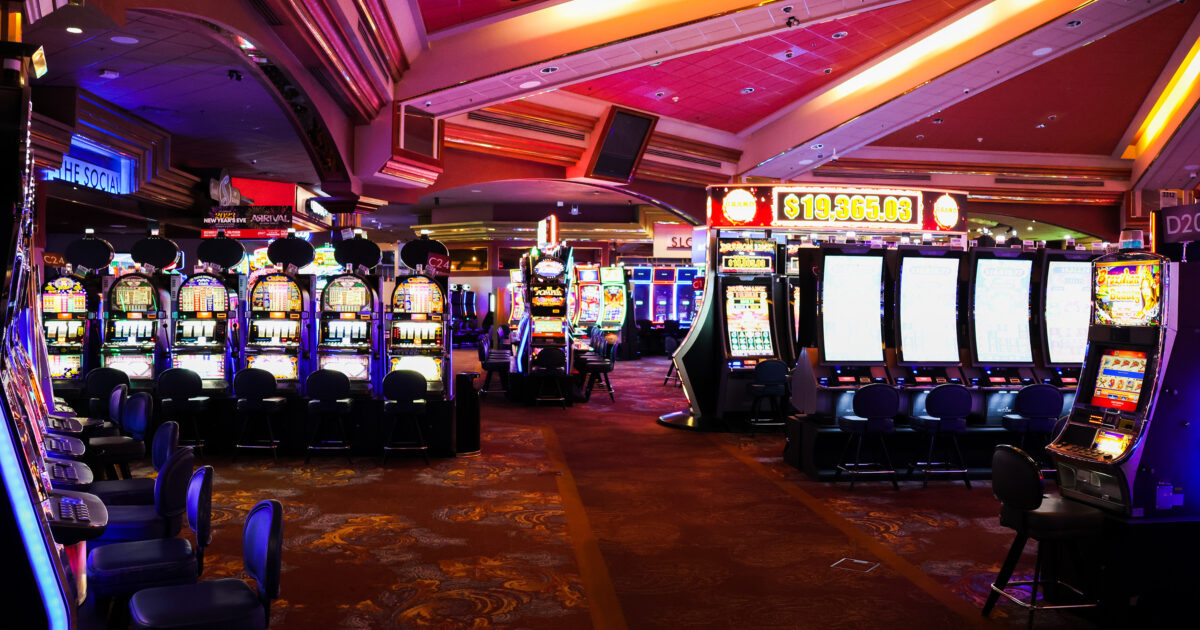
In the dynamic world of gaming, gaming activities have long captured the attention of players around the globe. These options, including classic table options like poker to the spinning reels of slots, offer an fascinating blend of chance and skill. While luck undeniably plays a significant role in shaping outcomes, the importance of knowledge in many gambling games cannot be ignored. Grasping how skill influences gameplay can enhance not only a gambler’s experience but also their chances of winning.
As we dig into the dynamics of casino games, it becomes evident that some require a solid foundation of knowledge and tactics. Activities like poker require more than just fortune; they call for strategic thinking, mental insight, and strategic decision-making. In opposition, other games, such as roulette and slot machines, are primarily based on chance, allowing gamblers to rely solely on random chance. This distinction raises thought-provoking questions about what genuinely drives achievement in the realm of casinos and how a gambler’s competences can tip the scales in their advantage.
Grasping Expertise versus Chance within Gambling Games
Within the sphere of casino games, the discussion between skill and luck is a long-standing one. Many games are often categorized into two categories: those that depend predominantly on chance, such as slot machines and the wheel, and those where skill plays a crucial role, like poker and 21. The distinction is important because it affects not only gameplay strategies but also the approach players take when engaging with these games. Although luck can play a decisive role in the short term, skilled players can increase their chances of winning over the long run in skill-based games.
Skill-based games, especially poker, demand players to understand probability, psychology, and game strategies. A seasoned poker player can analyze rivals, make strategic bets, and understand when to fold, all of which can lead to more successful outcomes. Conversely, in games that are purely based on chance, no amount of skill can alter the odds. This means that although a player may win big in one session, their success may frequently be at the mercy to the whims of random outcomes rather than any strategic expertise.
In the end, both skill and luck coexist in the world of casino games, forming a dynamic environment for players. Although games of chance can provide excitement and instant gratification, mastery and strategy in skill-based games offer a deeper level of engagement for those willing to dedicate time in refining their craft. This interaction between skill and luck defines the experiences of players and shapes their relationship with the games they choose to play.
The Impact of Expertise on Casino Results
In the world of casino games, ability plays a key role in determining the results, especially in activities where strategy and decision-making are paramount. For example, in poker, competitors must assess opponents, calculate odds, and make strategic bets to maximize their chances of winning. Unlike activities that rely purely on chance, such as slots or the roulette wheel, this game demands an understanding of both the rules and the psychology of other participants, making expertise a vital component of victory.
Other strategy-based activities, like the game of blackjack, also emphasize the importance of player expertise. Knowledge of basic tactics, card counting, and when to hit or stand can significantly influence the casino advantage. A proficient 21 player can lower this edge and boost their chances of success over time. This contrasts sharply with activities that do not allow for such strategic play, showcasing how the level of expertise directly affects the potential for positive outcomes. serbu4d
Moreover, even within games considered primarily luck-based, like craps, the choices made by gamblers can impact their overall performance. Choosing the right bets, understanding the odds of different outcomes, and controlling one’s bankroll are essential factors that can enhance a player’s experience and results. Thus, while chance remains a factor in gambling, skill can substantially affect how efficiently players navigate these environments, leading to more positive outcomes.
Strategies for Proficient Play in Casinos
To succeed in gambling games, players must develop a strong grasp of the regulations and odds involved in each game. This essential knowledge enables individuals to make informed choices, especially in skill-based games like poker and blackjack. Getting familiar oneself with game tactics, such as keeping track of cards in 21 or identifying wagering trends in Texas Hold’em, can significantly enhance a player’s chances of success. Sharpening these strategies through simulations or low-risk games allows players to hone their skills without putting substantial amounts of cash at risk.
One more key approach is bankroll management. Players should create a spending limit before entering the gaming establishment and adhere to it rigorously. This involves deciding how much they are prepared to lose and setting limits on how much they will wager in every gaming session. By keeping a disciplined approach to spending, players can maintain their play and reduce the risk of significant losses. Additionally, pausing can help preserve a clear head and prevent impulsive decisions that often lead to poor play.
In conclusion, emotional control is vital in the high-stakes environment of a casino. Players must be adept at controlling their emotions, particularly during periods of success or defeats runs. Staying attentive and not allowing emotions dictate gameplay can lead to more rational decisions. Techniques such as deep breathing or stepping away from the gaming table during heated moments can help maintain composure. By cultivating a balanced state of mind, players can approach casino games with confidence and skill, thereby enhancing their complete gaming experience and results.
